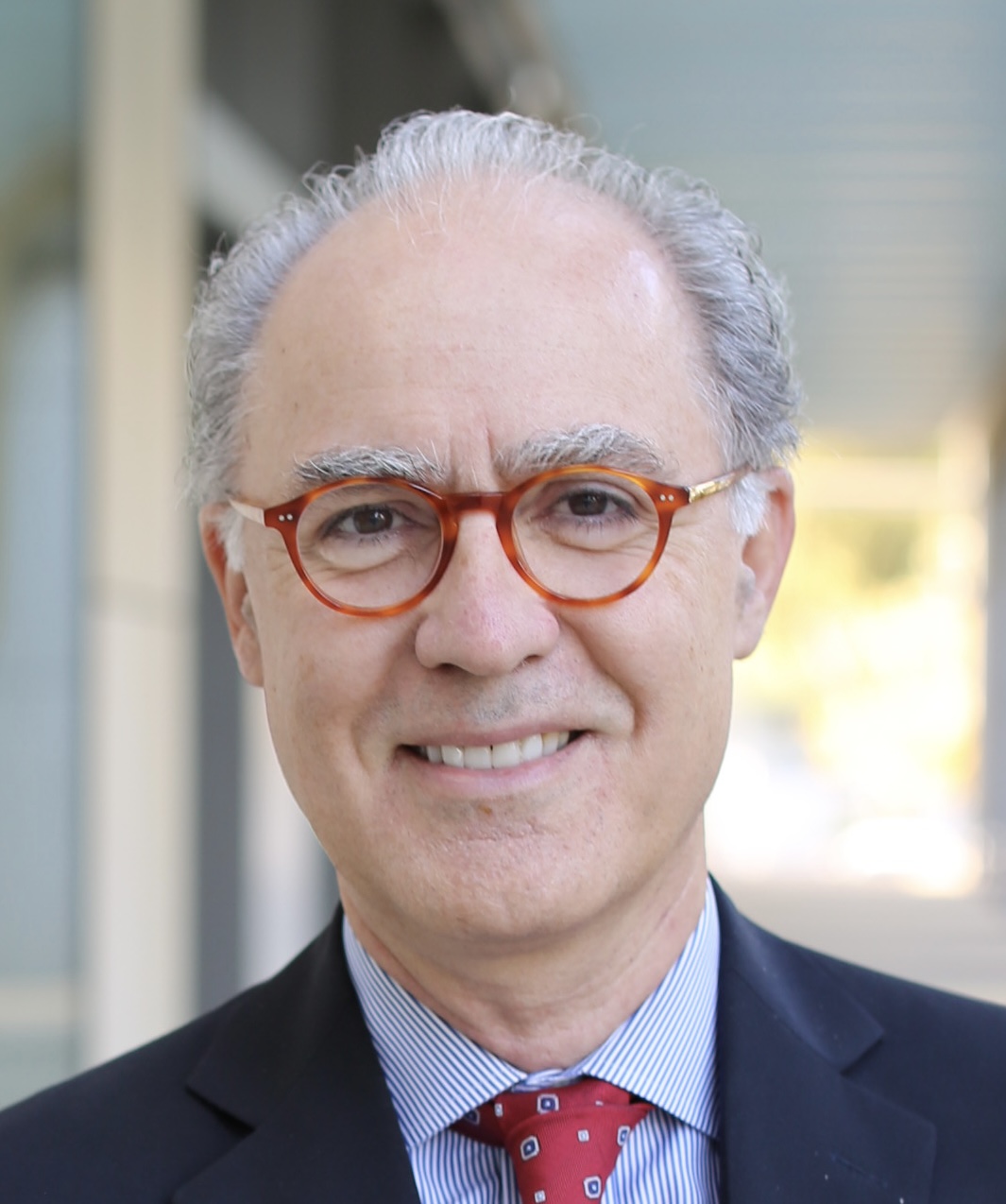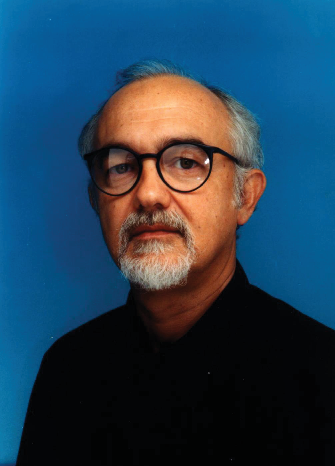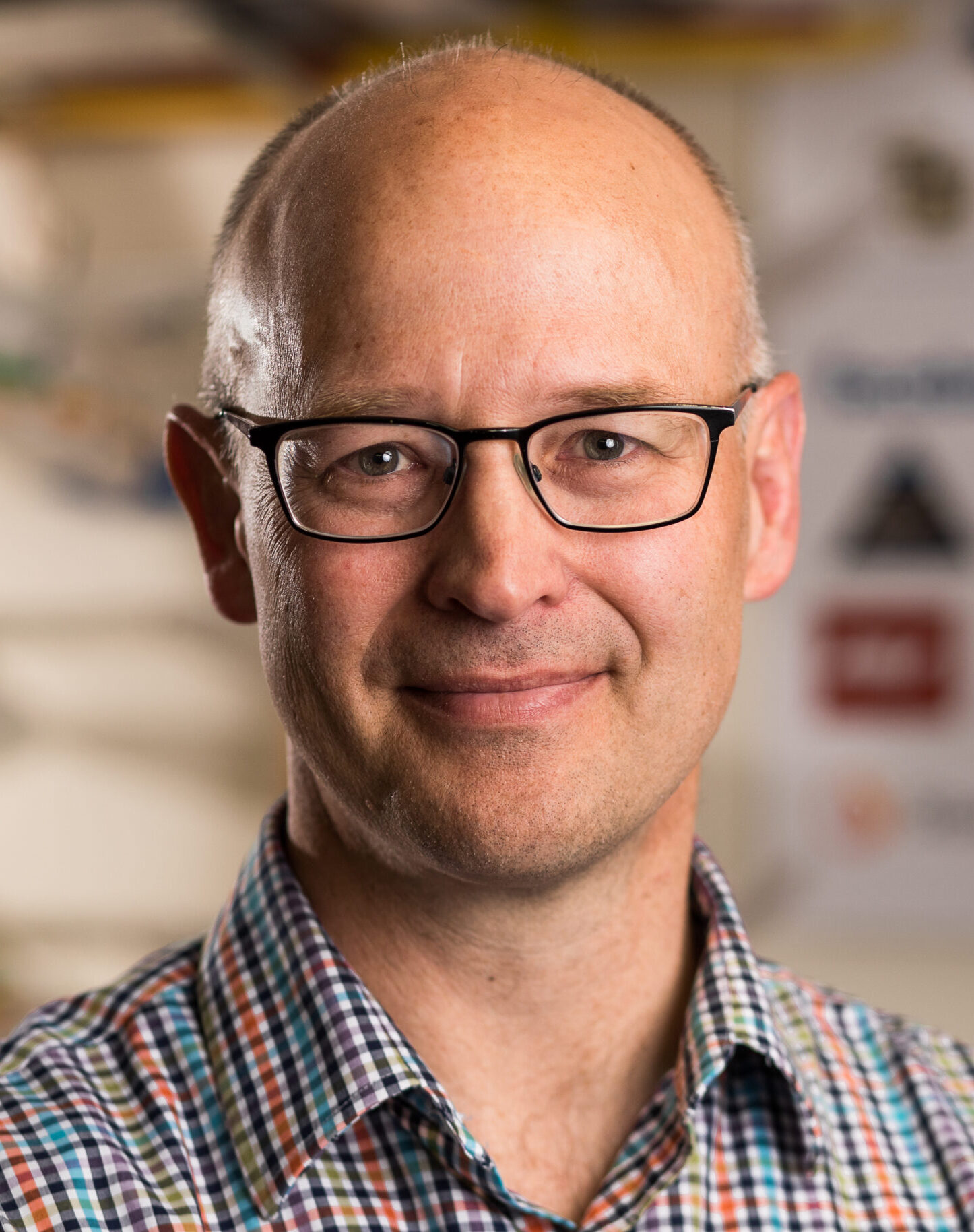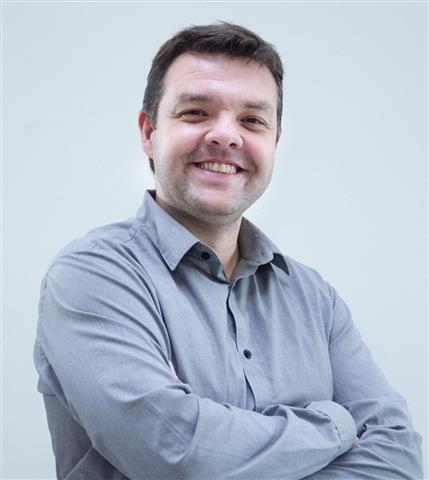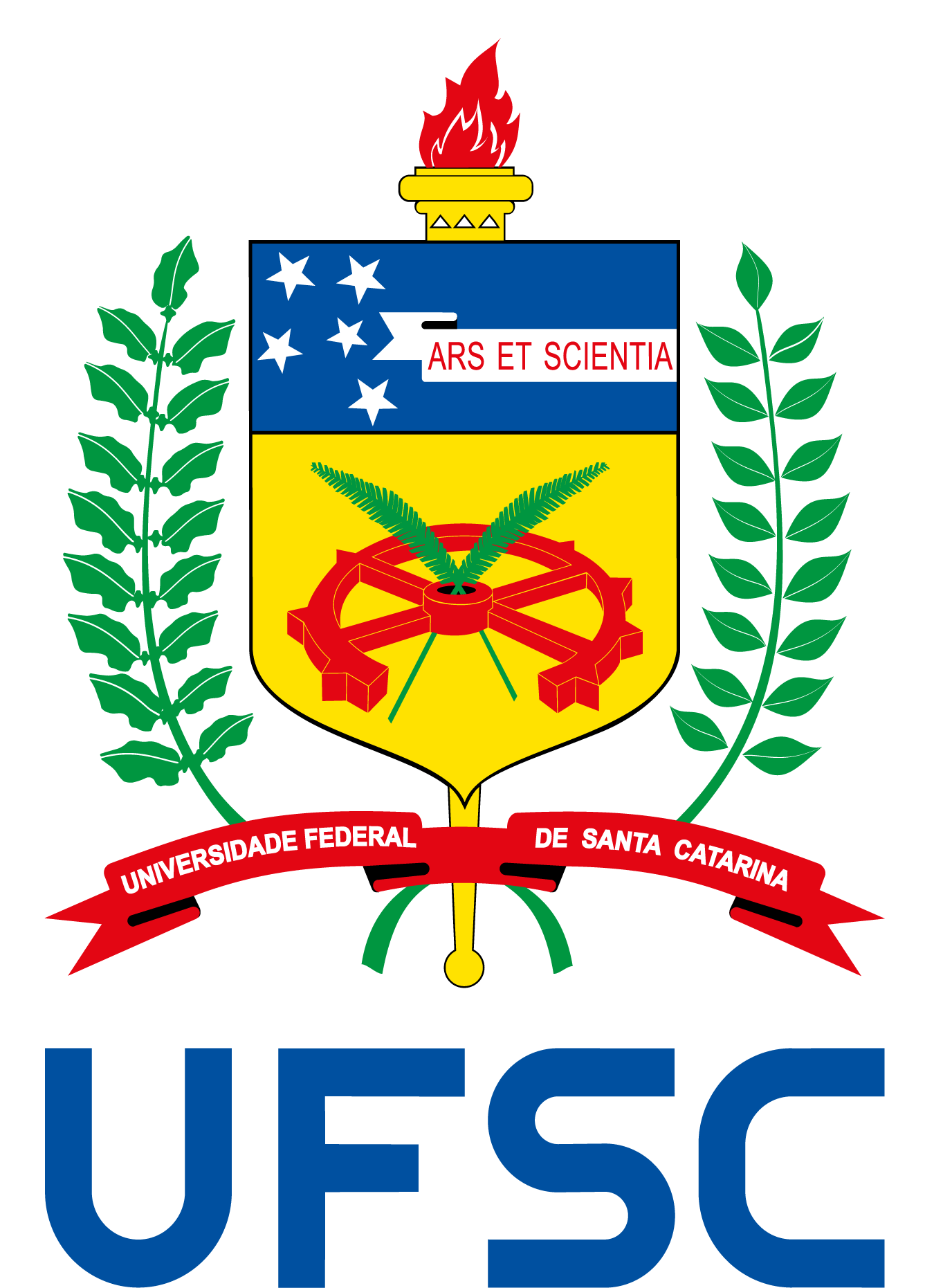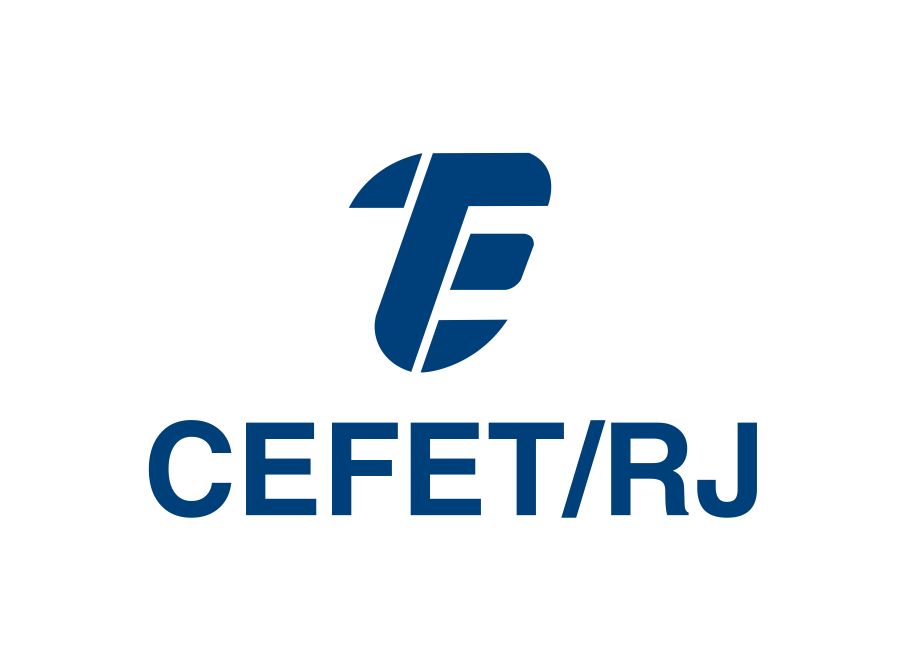Plenaristas
Miroslav Krstic
Distinguished Professor and Alspach Endowed Chair, UC San Diego
Miroslav Krstic is Distinguished Professor of Mechanical and Aerospace Engineering, holds the Alspach endowed chair, and is the founding director of the Center for Control Systems and Dynamics at UC San Diego. He also serves as Senior Associate Vice Chancellor for Research at UCSD. Krstic is Fellow of IEEE, IFAC, ASME, SIAM, AAAS, IET (UK), AIAA (Assoc. Fellow), and a member of the Serbian Academy of Sciences and Arts and of the Academy of Engineering of Serbia. He has received the Richard E. Bellman Control Heritage Award, Bode Lecture Prize, SIAM Reid Prize, ASME Oldenburger Medal, Nyquist Lecture Prize, Paynter Outstanding Investigator Award, Ragazzini Education Award, IFAC Nonlinear Control Systems Award, IFAC Ruth Curtain Distributed Parameter Systems Award, IFAC Adaptive and Learning Systems Award, Chestnut textbook prize, AV Balakrishnan Award for the Mathematics of Systems, Control Systems Society Distinguished Member Award, the PECASE, NSF Career, and ONR Young Investigator awards, and the Schuck (’96 and ’19) and Axelby paper prizes. He serves as Editor-in-Chief of Systems & Control Letters and has been serving as Senior Editor in Automatica and IEEE Transactions on Automatic Control. Krstic has coauthored eighteen books on adaptive, nonlinear, and stochastic control, extremum seeking, control of PDE systems including turbulent flows, and control of delay systems.
Miroslav Krstic é Distinguished Professor de Engenharia Mecânica e Aeroespacial, ocupa a cadeira Alspach e é o diretor fundador do Centro de Sistemas de Controle e Dinâmica da UC San Diego. Ele também atua como Vice-Reitor Associado Sênior de Pesquisa na UCSD. Krstic é Fellow da IEEE, IFAC, ASME, SIAM, AAAS, IET (Reino Unido), AIAA (Assoc. Fellow) e membro da Academia de Ciências e Artes da Sérvia e da Academia de Engenharia da Sérvia. Ele recebeu o Prêmio Richard E. Bellman Control Heritage, o Prêmio Bode Lecture, o Prêmio SIAM Reid, a Medalha ASME Oldenburger, o Prêmio Nyquist Lecture, o Prêmio Paynter Outstanding Investigator, o Prêmio Ragazzini Education, o Prêmio IFAC Nonlinear Control Systems, o Prêmio IFAC Ruth Curtain Distributed Parameter Systems, o Prêmio IFAC Adaptive and Learning Systems, o Prêmio Chestnut textbook, o Prêmio AV Balakrishnan for the Mathematics of Systems, o Prêmio Control Systems Society Distinguished Member, o PECASE, NSF Career e ONR Young Investigator, além dos prêmios Schuck (’96 e ’19) e Axelby. Ele atua como Editor-Chefe do periódico Systems & Control Letters e tem sido Editor Sênior em Automatica e IEEE Transactions on Automatic Control. Krstic é coautor de dezoito livros sobre controle adaptativo, não linear e estocástico, busca de extremos, controle de sistemas de EDP, incluindo fluxos turbulentos, e controle de sistemas com atraso.
Título da plenária: PDE Backstepping: From its Dawn to Noon
Abstract: The method of backstepping for PDEs, initiated in the late 1990s, neither mimics classical control designs for ODEs like LQG, nor resorts to model reduction, like PDE control methods of the preceding 40 years, but employs transformations of PDEs into their physically desirable equivalents. As a result, PDE backstepping feedback laws are not abstract constructs but given by explicit formulas. For that reason PDE backstepping is the first method of PDE control to lend itself to extensions to adaptive control, nonlinear PDEs, and extremum seeking. In one hour or less I can neither survey PDE backstepping comprehensively nor give a tutorial introduction, but will provide instead a story of its development. The classes of parabolic, hyperbolic, and delay systems are covered, as well as coupled systems from these classes. Applications in additive manufacturing, traffic flow, and multi-agent deployment are briefly introduced, as well as the recent thousandfold acceleration of implementation of PDE backstepping with machine learning.
José C. Geromel
Plenária Bottura & Castrucci
Professor, Faculdade de Engenharia Elétrica e de Computação – FEEC / UNICAMP
José C. Geromel was born in Itatiba, SP., Brazil on July 3rd, 1952. He received the B.Sc. and M.Sc. degrees in Electrical Engineering from University of Campinas – UNICAMP, Brazil, in 1975 and 1976, respectively, and the Docteur d’État degree from University Paul Sabatier – LAAS / CNRS, Toulouse, France, in 1979. He joined the School of Electrical and Computer Engineering at UNICAMP in 1975, where he is a full professor of Control Systems Analysis and Design. He held in 1987 a visiting professor position at Polytechnic Institute of Milan, Milan, Italy. He was awarded in 1994 and 2014 the Zeferino Vaz Award by UNICAMP and, in 2007, the Scopus Award jointly awarded by Elsevier and CAPES / Brazil. Since 1991 he has been a Fellow 1-A of the Brazilian National Council for Scientific and Technological Development – CNPq. Since 1998 he has been a member of the Brazilian Academy of Science. In 1999, he was named Chevalier dans l’Ordre des Palmes Académiques by the French Minister of National Education. In 2010, he received the Docteur Honoris Causa degree from University Paul Sabatier, Toulouse, France and was named a member of the Brazilian Order of Scientific Merit by the President of the Federative Republic of Brazil. Prof. Geromel was named, in 2011, Distinguished Lecturer by the IEEE Control Systems Society. In 2018, he was promoted to Grã-Cruz of the Brazilian Order of Scientific Merit. In 2023, he published the book “Differential Linear Matrix Inequalities”, Springer.
José C. Geromel nasceu em Itatiba, SP., Brasil, em 3 de julho de 1952. Concluiu a Graduação e o Mestrado em Engenharia Elétrica pela Universidade Estadual de Campinas – UNICAMP, Brasil, em 1975 e 1976, respectivamente e obteve o título de Docteur d’État pela Universidade Paul Sabatier – LAAS/CNRS, Toulouse, França, em 1979. Ingressou na Faculdade de Engenharia Elétrica e de Computação da UNICAMP em 1975, onde é professor titular de Análise e Projeto de Sistemas de Controle. Ocupou em 1987 o cargo de professor visitante no Instituto Politécnico de Milão, Milão, Itália. Foi agraciado em 1994 e 2014 com o Prêmio Zeferino Vaz pela UNICAMP e, em 2007, com o Prêmio Scopus concedido conjuntamente pela Elsevier e CAPES/Brasil. Desde 1991 é Pesquisador 1-A do Conselho Nacional de Desenvolvimento Científico e Tecnológico – CNPq. Desde 1998 é membro titular da Academia Brasileira de Ciências. Em 1999, foi nomeado Chevalier dans l’Ordre des Palmes Académiques pelo Ministro da Educação Nacional da França. Em 2010, recebeu o título de Docteur Honoris Causa pela Universidade Paul Sabatier, Toulouse, França e foi nomeado membro da Ordem Nacional do Mérito Científico pelo Presidente da República Federativa do Brasil. O Prof. Geromel foi nomeado, em 2011, Distinguished Lecturer pela IEEE Control Systems Society. Em 2018, foi promovido à Grã-Cruz da Ordem Nacional do Mérito Científico. Em 2023, publicou o livro “Differential Linear Matrix Inequalities”, Springer.
Título da plenária: O Problema Linear – Quadrático: Impactos e … Novas Perspectivas
Resumo: Esta palestra apresenta o bem conhecido problema Linear-Quadrático sob uma nova perspectiva. Ela aborda o problema de controle ótimo que determina um controlador dinâmico de realimentação de saída, de ordem completa, para um sistema linear invariante no tempo (LIT) com custo quadrático, formulado no domínio de tempo discreto. Mostra-se que o controlador ótimo é periódico e preserva a estrutura de observador de estado. Exemplos de diversas dimensões colocam em evidência que o desempenho do sistema em malha fechada, com o controlador periódico é muito melhor do que o desempenho conseguido com o controlador ótimo LIT clássico, fato que até o momento, não está presente na literatura. Verifica-se como calcular o controlador ótimo periódico através da solução de um problema convexo expresso por LMIs.
Karen Rudie
Professor, Electrical and Computer Engineering, Queen’s University
Karen Rudie received her Ph.D. in 1992 from the University of Toronto, in the Systems Control Group. In 1992–93 she was a postdoctoral researcher at the Institute for Mathematics and its Applications, Minnesota. Since 1993 she has been at Queen’s University (Canada) where she is a Professor of Electrical and Computer Engineering, a member of Ingenuity Labs Research Institute and a cross-appointed faculty member of the School of Computing. She has served on the editorial board of the Journal of Discrete Event Dynamic Systems (since 2000), where she is currently a Department Editor, and as an Associate Editor for IEEE Transactions on Control Systems Technology (2015-2020), IEEE Transactions on Automatic Control (1996–1999), and IEEE Control Systems Magazine (2003). From 2004–2006 she was an IEEE Control Systems Society Distinguished Lecturer and in 2021 she was one of the plenary speakers at the IEEE Conference on Decision and Control. She is a Fellow of the IEEE. Her research focuses on the modeling, analysis, and control of discrete-event systems—most recently with an emphasis on their application to the security of cyber-physical systems.
Karen Rudie concluiu seu doutorado em 1992 pela Universidade de Toronto, no Grupo de Controle de sistemas. Em 1992–93 ela foi pesquisadora de pos-soutorado no instituto de mathematica e suas aplicações, Minnesota. Desde 1993 ela faz parte da Universidade de Queen (Canada) onde ela é professora de engenharia elétrica e de computação, é membro do Instituto de pesquisa Ingenuity Labs e é membro nomeado do corpo docente da Escola de Computação. Ela atuou como no conselho editorial da Revista Discrete Event Dynamic Systems (desde 2000), em que ela é atualmente Department Editor, e foi uma editora associada da IEEE Transactions on Control Systems Technology (2015-2020), IEEE Transactions on Automatic Control (1996–1999) e IEEE Control Systems Magazine (2003). De 2004–2006 ela foi uma Distinguished Lecturer da IEEE Control Systems Society e em 2021 ela foi uma plenarista na IEEE Conference on Decision and Control. Ela é uma Fellow da IEEE. Sua pesquisa tem como foco a modelagem, análise e controle de sistemas a eventos discretos — recentemente com ênfase nas aplicações dessas áreas para a segurança de sistemas ciber-físicos.
Título da plenária: Secrecy and Security in Discrete-Event Systems
Abstract: The control theory of discrete-event systems (DESs) is a modeling framework for capturing the ordering of events or actions. Discrete-event systems modeling can be complementary to traditional continuous-time
systems modeling or can be used alongside or in concert with continuous-time modeling in hybrid systems. Since decision-making is tantamount to prescribing which actions should or should not happen or which actions should happen before others, the body of work in DES theory is well-positioned to allow us to tackle security problems in cyber-physical systems. In this talk we present different approaches in DES control theory that address various problems in the security of systems and networks. In particular, we examine the notion of opacity, which is the property of ensuring that secret states or secret sequences of events are not discernible from non-secret states or events to a hostile agent. We also look at cases where systems are attacked by adversarial agents that manipulate sensor outputs (i.e., event occurrences generated by a plant) so that a supervisor (i.e., a DES controller) is fooled into thinking the system is in some state that it is not in. We discuss the challenges of modeling security and secrecy problems using discrete-event systems.
Cleverson Marinho
Plenária Industrial EMBRAER
Engenheiro Aeronáutico – EMBRAER
Cleverson Maranhão Porto Marinho has a degree in Electronic Engineering (2002), a master’s degree (2004) and a doctorate (2009) in Electronic and Computer Engineering from the Aeronautical Technological Institute. He has worked as a Product Development Engineer at Embraer since 2010. He has been involved in the development of flight control systems for the Legacy 500, KC-390 and 175E2 aircraft. His research interests include Robust Aircraft Control and Nonlinear Control.
Cleverson Maranhão Porto Marinho possui graduação em Engenharia Eletrônica (2002), mestrado (2004) e doutorado (2009) em Engenharia Eletrônica e de Computação pelo Instituto Tecnológico da Aeronáutica. Atua como Engenheiro de Desenvolvimento de Produto na Embraer desde 2010. Esteve envolvido no desenvolvimento de sistemas de controle de voo para aeronaves Legacy 500, KC-390 e 175E2. Seus interesses de pesquisa incluem Controle Robusto de Aeronaves e Controle Não-linear.
Sobre a EMBRAER
A EMBRAER foi criada em 1969 com apoio do governo nacional. A primeira aeronave desenvolvida foi o Bandeirante, um avião turbo propulsor, destinado ao uso civil e militar dual, com capacidade para transportar de 15 a 21 passageiros. Hoje, a EMBRAER é a 3ª maior fabricante de jatos comerciais do mundo, conta com dezoito mil empregados e já entregou mais de oito mil aeronaves.
Título da plenária: Leis de Controle de Voo – Experiência Embraer
Resumo: O desenvolvimento dos modernos sistemas de controle das aeronaves atuais envolve um esforço multidisciplinar que vai da aerodinâmica aplicada ao software embarcado. Os engenheiros de controle devem interagir com os especialistas das mais diversas tecnologias aeronáuticas para desenvolver um sistema que atenda os requisitos de segurança e performance exigidos por autoridades homologadoras e pelas operadoras das aeronaves. Na palestra será apresentada uma visão geral do ciclo de projeto das leis de controle das aeronaves desenvolvidas nos anos recentes pela Embraer
Randal W. Beard
Professor, Electrical and Computer Engineering, Brigham Young University.
Randal W. Beard received the B.S. degree in electrical engineering from the University of Utah, Salt Lake City, in 1991, the M.S. degree in electrical engineering in 1993, the M.S. degree in mathematics in 1994, and the Ph.D. degree in electrical engineering in 1995, all from Rensselaer Polytechnic Institute, Troy, N.Y. Since 1996, he has been with the Electrical and Computer Engineering Department at Brigham Young University, Provo, UT, where he is currently holds the Steven V. White University Professorship, and is the department chair. In 1997 and 1998, he was a Summer Faculty Fellow at the Jet Propulsion Laboratory, California Institute of Technology, Pasadena, CA. In 2006-2007 he was a National Research Council Fellow at the Air Force Research Labs at Eglin Air Force Base, Fort Walton Beach, Florida, where he worked on vision-based guidance and control algorithms for micro air vehicles.
His primary research focus is in autonomous systems, unmanned air vehicles, and multiple vehicle coordination and control. He has published over 250 peer reviewed articles and has received over $10M in external research funding from AFOSR, AFRL, NASA, DARPA, and NSF. He is a fellow of the IEEE and the AIAA. He is a former associate editor for the IEEE Transactions on Automatic Control, the Journal of Intelligent and Robotics Systems, and the IEEE Control Systems Magazine. He is the recipient of several awards including the 2024 AIAA Intelligent Systems Award and the 2017 Karl G. Maeser Distinguished Lecturer Award. His students have won numerous competitions and awards for their work on micro air vehicles.
Randal W. Beard concluiu sua graduação em engenharia elétrica pela universidade de Utah, Salt Lake City, em 1991, seu mestrado em engenharia elétrica em 1993, seu mestrado em matemática em 1994, e seu doutorado em engenharia elétrica em 1995, todos pelo instituto politécnico Rensselaer, Troy, N.Y. Desde 1996, ele faz parte do departamento de engenharia elétrica e de computação na universidade de Brigham Young, Provo, UT, onde ele ocupa o cargo Steven V. White University Professorship, e é o chefe do departamento. Em 1997 e 1998, ele foi membro da Summer Faculty no laboratório Jet Propulsion, no instituto de tecnologia da Califórnia, Pasadena, CA. Em 2006-2007, ele foi membro do comitê nacional de pesquisa nos laboratórios de pesquisa na base Eglin da aeronáutica, Fort Walton Beach, Florida, onde ele trabalhou sobre orientação baseada na visão e algoritmos de controle para micro-veículos aéreos.
Sua pesquisa tem como foco principal systemas autônomos, veículos aéreos não-tripulados, e coordenação e controle de múltiplos veículos. Ele já publicou mais de 250 artigos revisados por pares e já recebeu mais de $10M em financiamento externo para pesquisa da AFOSR, AFRL, NASA, DARPA e NSF. Ele é fellow da IEEE e da AIAA. Foi editor associado da IEEE Transactions on Automatic Control, Journal of Intelligent and Robotics Systems, e da IEEE Control Systems Magazine. Ele recebeu diversos prêmios, entre eles o prêmio 2024 AIAA Intelligent Systems e o prêmio 2017 Karl G. Maeser Distinguished Lecturer. Seus alunos ganharam inúmeras competições e prêmios pelos seus trabalhos em micro-veículos aéreos.
Título da plenária: Continuously parameterized planning and estimation with applications to autonomous vehicles
Abstract: The state-of-the art in autonomous vehicles requires planning and estimation techniques that capture the continuous-time aspects of the problem. For example, discretely sampling a trajectory to ensure collision avoidance at those samples does not necessarily guarantee that the trajectory is safe. Some of our recent work uses B-splines to represent the continuous trajectory, where safety at every point on the trajectory can be guaranteed by checking the convex hull of the control points. In this talk we will give a tutorial overview of the B-spline parameterization for trajectories of dynamic systems. We will overview applications of these techniques to planning problems for autonomous vehicles with an emphasis on unmanned aircraft systems. We will also overview recent results in applying B-spline techniques to estimation problem where measurement delays, and out-of-sequence measurements, and clock mismatch issues are handled in a natural way.
Paulo Drews Jr.
Plenária Jovem Pesquisador
Professor Associado do Centro de Ciência Computacional – C3 da
Universidade Federal do Rio Grande – FURG
Paulo Drews-Jr is a D.Sc. and M.Sc. in Computer Science at the Federal University of Minas Gerais(UFMG), Belo Horizonte, Brazil. His doctoral dissertation focused on restoring images acquired in participating media applied to robotics. His master’s thesis was focused on change detection and shape retrieval in 3D Maps. He graduated in Computer Engineering from the Federal Univesity of Rio Grande (FURG), Rio Grande, Brazil. His main research interests are robotics, computer vision, image processing, pattern recognition, and machine learning. He was a researcher at the ISR Coimbra’s Mobile Robotics Lab, collaborating as a research fellow on the FP projects Prometheus and IRPS. He was also a visiting researcher in the Autonomous System Lab at QCAT-CSIRO, Brisbane, Australia, and a Guest Professor at the Robot Learning Lab of the University of Freiburg, Germany. He is an Associate Professor of the Center for Computational Science – C3 at the Federal University of Rio Grande – FURG and a Planning Coordinator of the iTec/FURG EMBRAPII Unit in Robotic Systems and Automation. He is also a CNPq Research Fellow of Productivity in Technological Development and Innovative Extension (DT 2).
Paulo Drews-Jr é doutor e mestre em Ciência da Computação pela Universidade Federal de Minas Gerais (UFMG), Belo Horizonte, Brasil. Sua tese de doutorado focou na restauração de imagens adquiridas em meios participativos aplicados à robótica. Sua tese de mestrado focou na detecção de mudanças e recuperação de formas em mapas 3D. Ele se formou em Engenharia da Computação pela Universidade Federal do Rio Grande (FURG), Rio Grande, Brasil. Seus principais interesses de pesquisa são robótica, visão computacional, processamento de imagens, reconhecimento de padrões e aprendizado de máquina. Foi pesquisador no Laboratório de Robótica Móvel do ISR-Coimbra, colaborando como pesquisador nos projetos FP Prometheus e IRPS. Foi também pesquisador visitante no Laboratório de Sistemas Autônomos do QCAT-CSIRO, Brisbane, Austrália, e professor convidado no Laboratório de Aprendizagem de Robótica da Universidade de Freiburg, Alemanha. É Professor Associado do Centro de Ciência Computacional – C3 da Universidade Federal do Rio Grande – FURG e Coordenador de Planejamento da Unidade iTec/FURG EMBRAPII em Sistemas Robóticos e Automação. É também Bolsista de Pesquisa CNPq de Produtividade em Desenvolvimento Tecnológico e Extensão Inovadora (DT 2).
Título da plenária: Robótica e os seus Desafios no Mundo da Inteligencia Artificial
Resumo: A robótica traz desafios importantes tanto sob ponto de vista científicos quanto tecnológicos. A relevância e as aplicações práticas fazem com que esforços sejam necessário. Dentro de um contexto extremamente interdisciplinar da robótica, a autonomia traz desafios e oportunidades importantes e relevantes que conversam com os recentes avanços em inteligencia artificial. Também serão discutidos exemplos práticos desenvolvidos nos projetos do grupo de Automação e Robótica Inteligente – NAUTEC e na Unidade Embrapii Centro de Robótica e Inteligência Artificial – iTEC, ambos da Universidade Federal do Rio Grande – FURG.

